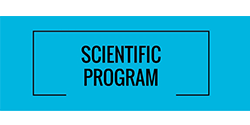
Chun-Chi Chung
National Taiwan Normal University, Taiwan
Title: Preliminary discussion and verification for far infrared radiation energy
Biography
Biography: Chun-Chi Chung
Abstract
Far-infrared radiation energy can enhance the disturbance of fluid molecules and their collision with surrounding objects, thereby promoting energy transfer. However, the far-infrared radiation energy of such materials still requires verification. In this study, 2.5 wt.% far-infrared radiation materials (FIRMs; namely Al2O3, ZnO, ZrO2 and SiO2), artificial far-infrared ceramics, TiO2, graphite and multi-walled carbon nanotubes were added to acrylic paints to form Far-Infrared Coatings (FIRCs). These FIRCs were coated on stainless steel plates and mounted in PMMA cuvettes. Each cuvette was then filled with 2 mL of 0.2 wt.% Al2O3/water nano-fluid (AWNF) as a spectrometer sample and the absorbance of the samples was measured initially and after 24 hours at different ambient temperatures (30 °C, 40 °C, 50 °C and 60 °C). The far-infrared radiation energy intensity of each sample was evaluated based on the difference in AWNF absorbance before and after standing for 24 hours. The results showed that FIRCs with different FIRMs could improve AWNF suspension performance at different ambient temperatures in most cases. Among these FIRMs, ZnO had the strongest effect on improved AWNF suspension performance. However, FIRCs with different FIRMs still varied considerably at different ambient temperatures in terms of improved AWNF suspension performance. This phenomenon indicates that ambient temperature also affects the far-infrared radiation energy intensity of FIRMs.

